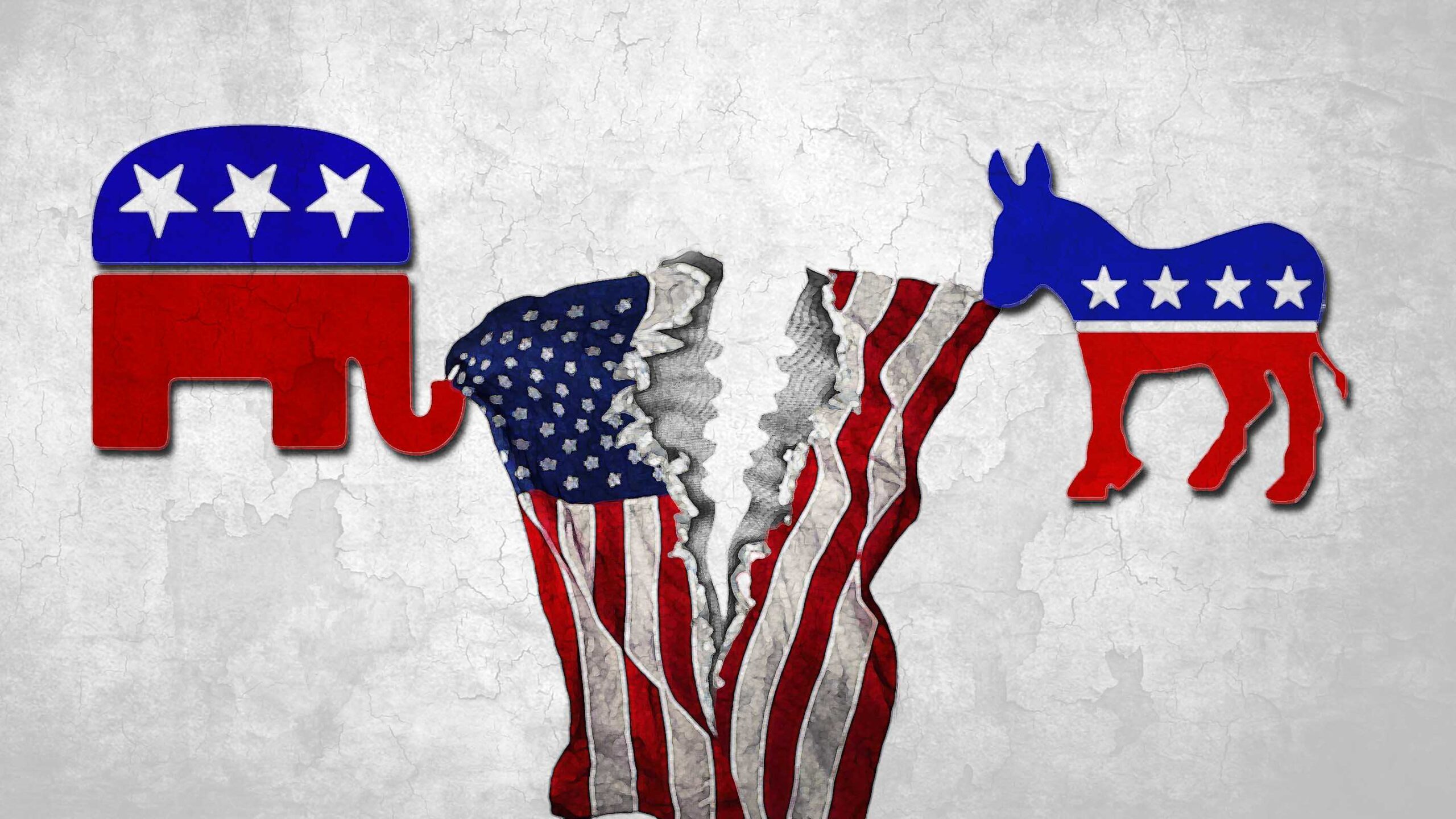Respecting Differences in Political Opinion, the Other Side Isn’t Evil or Stupid
In today’s world of increased environment political polarization, where political opinions seem to define one’s identity, it is more important than ever to foster a culture of respect and understanding for diverse viewpoints. Too often, we witness a toxic environment where those with differing political beliefs are instantly labeled as either evil or stupid. However, it is crucial to debunk these stereotypes and recognize that the other side is not inherently wicked or unintelligent.
This article aims to explore the significance of respecting differences in political opinion and provide insights on how we can engage in constructive dialogue, bridge divides, and foster a society that values diversity of thought. By doing so, we can work towards a more inclusive and harmonious future, where differing political ideologies are seen as opportunities for growth rather than sources of contention.
The Need for Respecting Political Differences
America’s Political Polarization climate
In today’s world, it seems like political divisiveness is at an all-time high. From fiery debates on social media to heated arguments around the dinner table, it’s clear that our society is deeply divided along political lines. The polarization we see can often lead to hostility, insults, and a lack of respect for those who hold different political opinions.
Importance of understanding and respecting diverse viewpoints
However, amidst all this divisiveness, it’s crucial for us to understand and respect diverse political viewpoints. While it may be challenging at times, respecting differences allows us to foster healthy conversations, gain new perspectives, and ultimately work towards a more inclusive society. It’s about recognizing that the other side isn’t evil or stupid, but rather, they have their own unique perspective shaped by their experiences, values, and beliefs.
Understanding Diverse Political Perspectives
Cognitive biases and their impact on political opinions
One key factor in understanding political differences is recognizing the role of cognitive biases. We all have inherent biases that influence the way we perceive and interpret information. These biases can shape our political opinions, often leading us to seek out information that confirms our existing beliefs. Understanding this phenomenon can help us approach political discussions with more empathy and open-mindedness.
Social and cultural factors influencing political beliefs
Moreover, our political beliefs are also shaped by various social and cultural factors. Our upbringing, education, and the communities we belong to play a significant role in molding our political perspectives. Recognizing that political opinions are not isolated from these external influences can help us appreciate the diversity of viewpoints and the complex tapestry of human experience.
Debunking Stereotypes: The Other Side Isn’t Evil
Stop the demonization of opposing political ideologies
It’s easy to fall into the trap of demonizing those with opposing political ideologies. However, it’s important to challenge this tendency and realize that people on the other side are not inherently evil. They may have different priorities, values, or approaches, but that doesn’t make them villains. By humanizing those with differing opinions, we can create a more respectful and constructive environment for dialogue.
Recognize the common goals behind different political approaches
Contrary to popular belief, different political ideologies often share common goals. While the approaches to achieving these goals may differ, the underlying motivations are often rooted in a desire for a better society. Recognizing this common ground can help bridge the divide and foster collaboration, rather than furthering the divisions between us.
Overcoming Misconceptions: The Other Side Isn’t Stupid
Understanding the underlying rationale of opposing viewpoints
It’s easy to dismiss opposing viewpoints as foolish or ignorant, but doing so only perpetuates the cycle of division. To truly respect different political opinions, we must make an effort to understand the underlying rationale behind them. By seeking to comprehend the logic and reasoning behind different perspectives, we can engage in more meaningful and productive conversations.
Acknowledging the intelligence and expertise of individuals with differing political opinions
Finally, it’s essential to acknowledge the intelligence and expertise of individuals who hold different political opinions. Just because someone disagrees with us doesn’t mean they lack intelligence or knowledge. We should recognize that people with diverse political perspectives bring unique insights and experiences to the table, enriching the discourse and pushing us towards more well-rounded solutions.
By respecting differences in political opinion, we can create an environment that encourages healthy debate, fosters understanding, and works towards collaborative solutions. So, let’s remember that the other side isn’t evil or stupid; they are simply human beings with their own valid perspectives.
Political Polarization: The Importance of Constructive Dialogue
Political discussions can often become heated and divisive, with people talking past each other rather than engaging in meaningful dialogue. However, fostering respectful political discourse is essential for a healthy and functioning society.
Creating an environment conducive to respectful political discourse
To create an environment that encourages respectful political discourse, it’s important to establish ground rules. These can include setting a respectful tone, promoting open-mindedness, and discouraging personal attacks or derogatory language. By creating a safe space for conversation, we allow for the free exchange of ideas without fear of judgment or hostility.
Active listening and empathy as key elements in political conversations
Active listening and empathy are crucial components of respectful political conversations. When engaging in a discussion, truly listen to the other person’s perspective without interrupting or formulating counterarguments in your head. Seek to understand their underlying motivations and concerns. Cultivating empathy allows us to see beyond our own biases and appreciate the experiences and values that shape someone else’s political beliefs.
Fostering Respectful Political Discourse
Respecting differences in political opinion requires adopting strategies that promote understanding and keep conversations respectful. Here are a couple of effective strategies:
Practicing open-mindedness and intellectual humility
Being open-minded means being willing to consider views that differ from our own. Recognizing that none of us have a monopoly on truth or perfect knowledge is essential. Intellectual humility involves acknowledging the limits of our understanding and being willing to learn from others. By approaching political conversations with an open mind and a willingness to learn, we foster an environment that promotes respect and growth.
Engaging in fact-based discussions and avoiding personal attacks
It’s important to engage in fact-based discussions rather than relying on assumptions or stereotypes. Citing credible sources and evidence can help ground the conversation in objective reality. Additionally, avoid resorting to personal attacks or character assassinations. Criticize ideas, not individuals. By focusing on the issues and maintaining a respectful tone, we can keep the conversation productive and constructive.
Political Polarization: Navigating Political Differences in Personal Relationships
Political differences can strain personal relationships, but with some tact and understanding, it’s possible to find a balance.
Balancing personal connections with political disagreements
When engaging in political discussions with loved ones, it’s important to prioritize the relationship over winning an argument. Recognize that differing opinions are not a reflection of personal attacks on your values or character. Emphasize the shared values and experiences that bind your relationship together and find ways to navigate political disagreements without undermining the bond you share.
Finding common ground and maintaining healthy relationships
Finding common ground is essential for maintaining healthy relationships despite political differences. Focus on shared interests and common goals that you both hold dear. By seeking areas of agreement and understanding, you can build bridges of connection rather than erecting walls of division. Remember, a relationship is much more than just political alignment, and nurturing those other aspects can help you maintain a strong and positive connection.
Political Polarization: Finding Common Ground Despite Political Disagreements
In an increasingly polarized world, it’s essential to find common ground and work towards shared objectives and goals.
Identifying shared values and goals
Identifying shared values and goals provides a foundation for constructive dialogue. Despite differing political opinions, there are often common aspirations that can serve as starting points for collaboration. By focusing on these shared ideals, we can foster understanding and cooperation among people with diverse political beliefs.
Collaborative problem-solving and building consensus
Instead of viewing political disagreements as insurmountable obstacles, approach them as opportunities for collaborative problem-solving. Seek out areas where compromise is possible and work towards building consensus. By pooling diverse perspectives and finding common solutions to societal challenges, we can make progress even in the face of political differences. Remember, change often occurs through dialogue and finding common ground, not by remaining steadfastly entrenched in our own opinions.In conclusion, embracing and respecting differences in political opinion is vital for the well-being of our communities and society as a whole.
By challenging stereotypes, debunking misconceptions, and engaging in constructive dialogue, we can foster an environment where diverse viewpoints are valued and understood. Let us remember that the other side is not evil or stupid, but rather individuals with unique perspectives shaped by their experiences and beliefs. Through empathy, open-mindedness, and a genuine willingness to find common ground, we can build bridges and work towards a future that celebrates the rich tapestry of political thought. Together, let us cultivate a culture of respect, understanding, and collaboration, even in the face of profound political disagreements.





